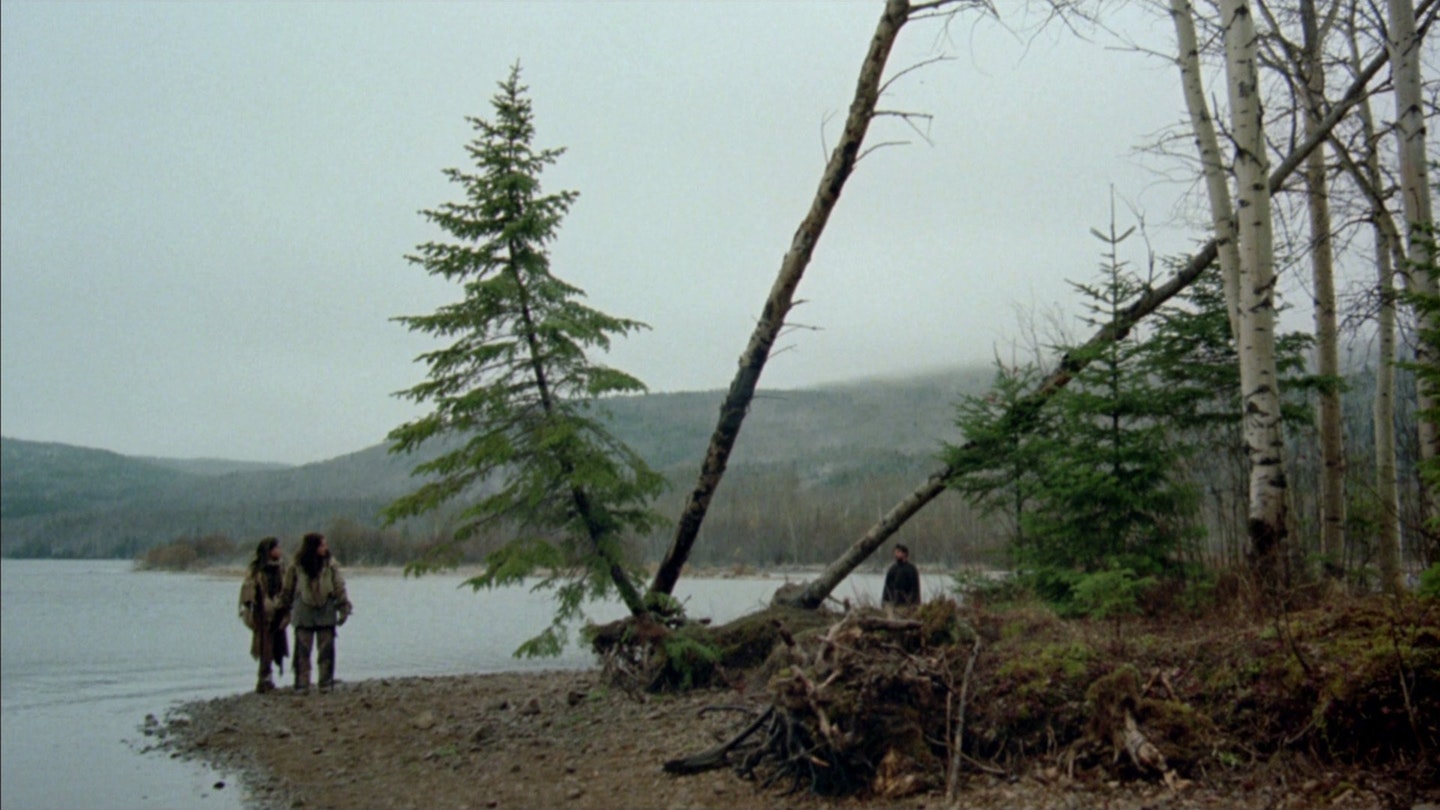1643, Quebec. Father Laforgue (Bluteau) sets out upriver with a young French sidekick Daniel (Young) and several canoe-loads of marginally friendly Algonquins, intent on reinforcing the troubled Jesuit mission to the Huron tribe. Fanatically devoted to bringing salvation to the savages, Laforgue, known as Black Robe to the Indians, is a puzzling presence to the Native Canadians, who cannot be sure whether he is a medicine man or a demon. Meanwhile, as Daniel falls for an Indian girl (Holt), Laforgue's intensely personal spirituality is reshaped by the forces of the river, the forests and the hostile peoples. Things get especially rough for the party when they fall into the hands of the murderous Iroquois, who intend to torture them all to death to demonstrate their own strength.
Black Robe will probably get sold as a cross betwen Dances With Wolves and Aguirre Wrath Of God, with more than a dash of Heart Of Darkness thrown in, but this adaptation of Brian Moore's novel is very much its own film, combining an epic sweep of the journey into the wilderness with a potent examination of the rigours of faith. Bluteau, following up his role in Jesus Of Montreal, is extraordinary as the priest, completely turning around audience sympathies as the unbending fanatic, without compromise, comes almost to understand the nature of evil and yet still cannot prevent himself from perpetuating it. Tackling a physically and spiritually gruelling role, Bluteau never overplays and never takes an easy path to a 17th Century character as alien to a modern audience as are the Algonquins and Hurons.
While Kevin Costner celebrated Indians as New Age demigods, Bruce Beresford - all the flabbiness of such liberal ventures as Driving Miss Daisy and Mr Johnson banished - is confident enough to present a matter-of-fact depiction of a culture horrifically inclined towards hideous violence, without forcing any moral conclusions. With an insight into magic and the shaping of a people by their environment, the film has brutally lyrical dream moments that pull off the incredibly difficult trick of evoking religious feeling - both for the shamanist Indians and the Catholic Frenchmen - without corn.
